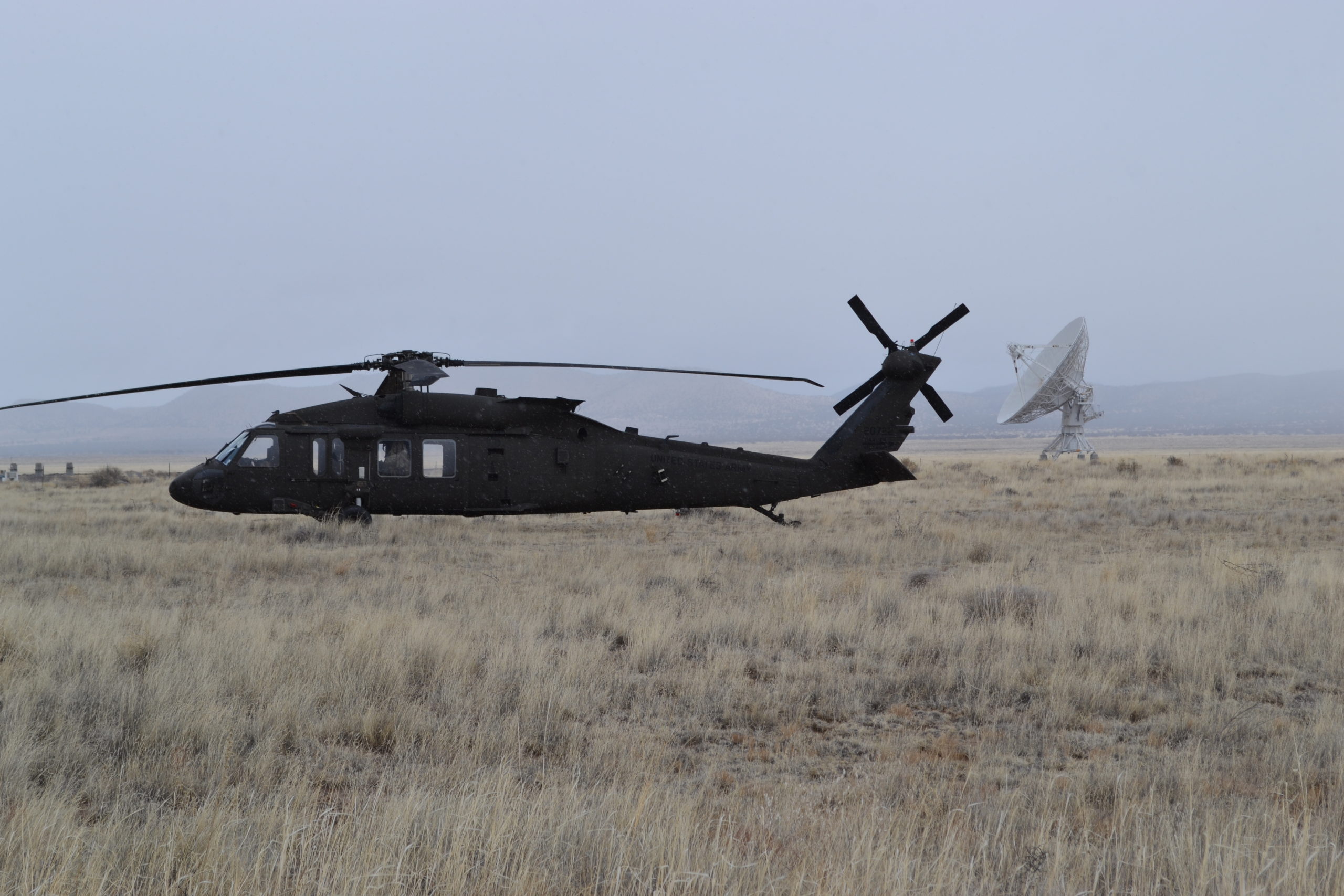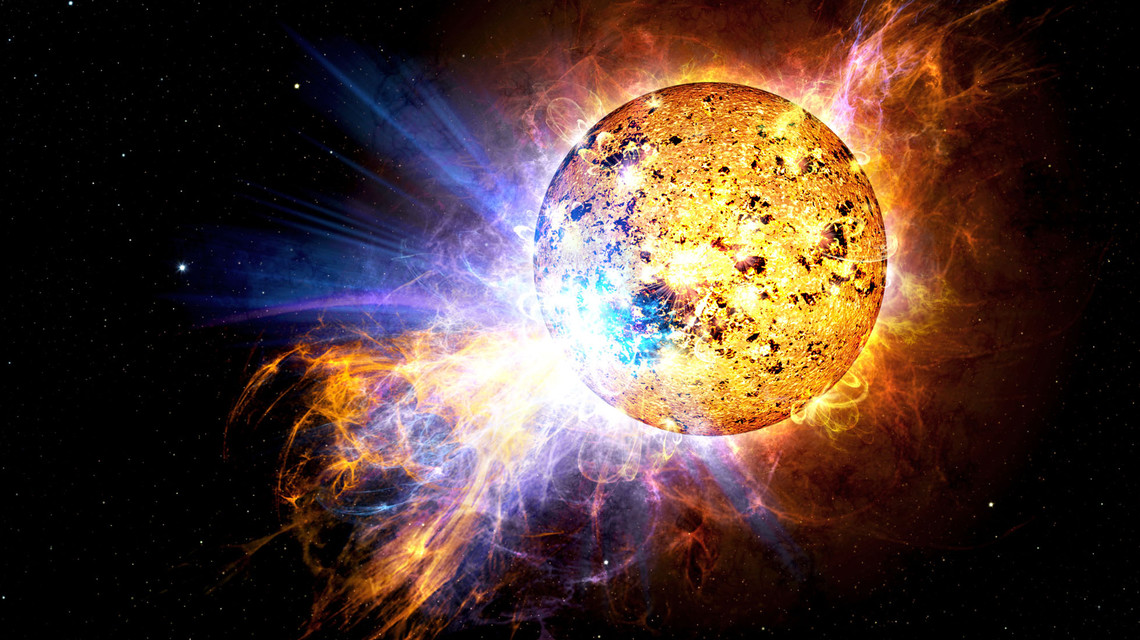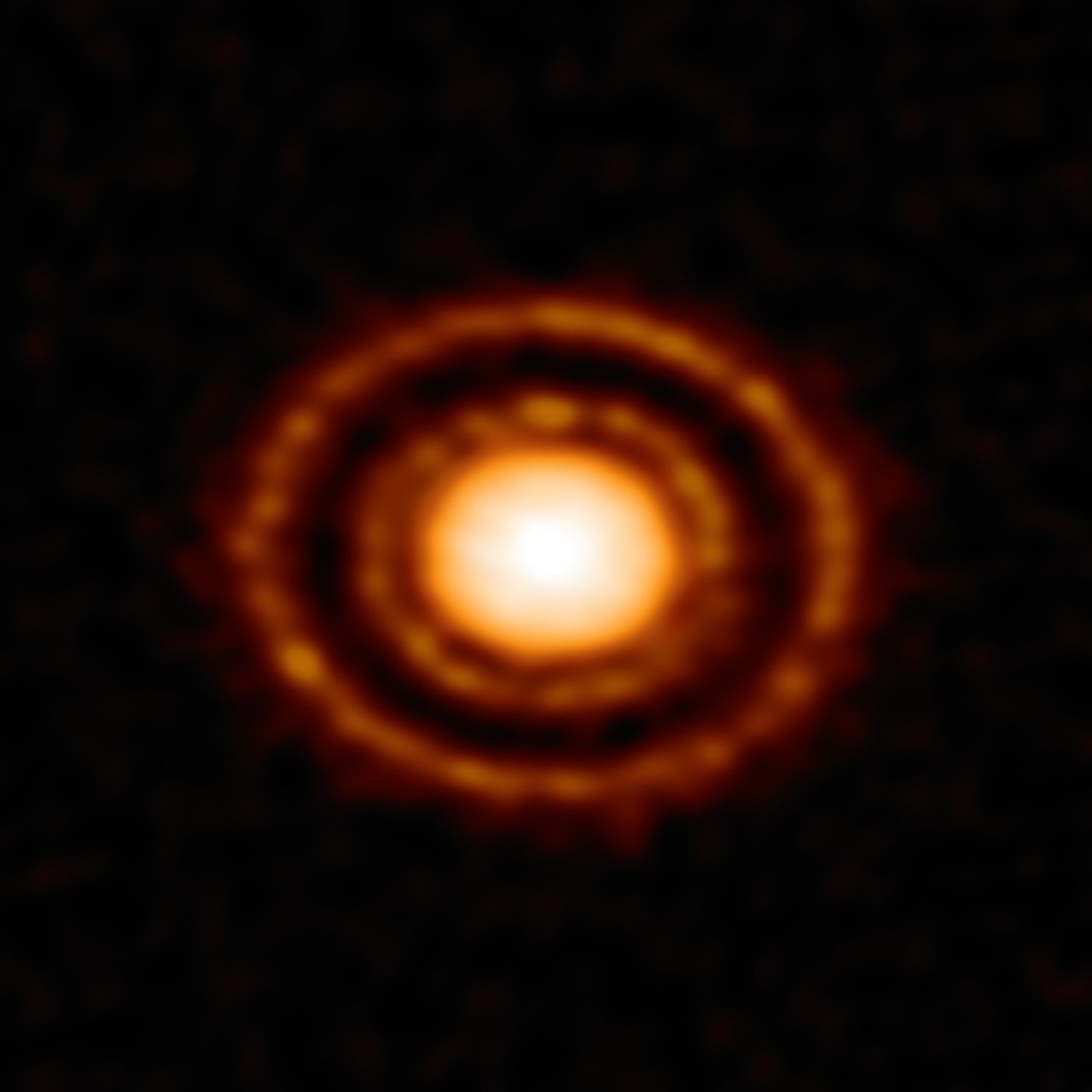As part of a training event, the U.S. Army’s C Company, 3rd Battalion, 501st Aviation Regiment, Combat Aviation Brigade, First ArmoredDivision, based at Fort Bliss, Texas, made a stop at the Karl Jansky Very Large Array on February 20. Arriving in five UH-60 Blackhawk helicopters, they landed and met NRAO staffers for a guided tour of the radio...




